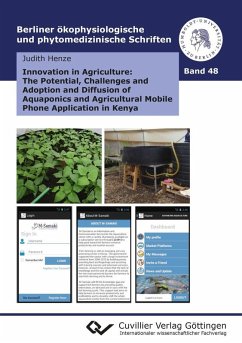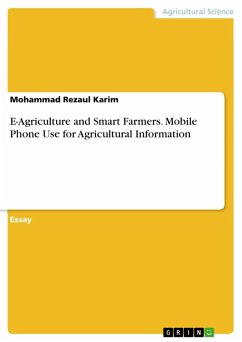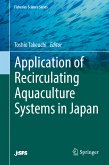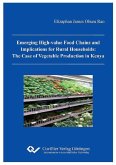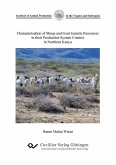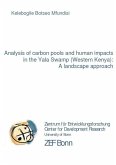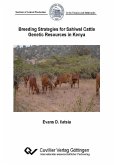Population growth and growing agricultural challenges necessitate the adoption of intensive and resource-efficient farming methods in Kenya. Following a case-study research approach, technical and economic feasibility of aquaponics as a locally suitable innovation, and mobile phone applications (“apps”) as an information diffusion tool were conducted. The research proves that aquaponics systems can be built with locally available production materials; that its production outperforms in-soil production for the chosen crop, and that farmers can successfully operate such a system when given training and support. However, considerable practical challenges, important cultural factors and a missing information and input network, render it unlikely that this production method will be taken up by many farmers in Kenya within the next decade.
Mobile phone applications are a growing service sector, due to widespread mobile phone ownership and high cultural acceptance. In order to test if agricultural apps can be used as an information dissemination tool, an app for the aquaculture sector was built and tested with fish farmers in Kakamega County. The results show that while the farmers valued the information service provided, apps are not suitable to be used as a sole information medium, as direct contact and practical training are vital within the African culture. However, apps and digital platforms are very likely to increase in relevance in the near future, as the younger generations in particular use Information and Communication Technologies (ICT), and as ICT services will ease the bottlenecks in the various value chains.
Dieser Download kann aus rechtlichen Gründen nur mit Rechnungsadresse in A, B, BG, CY, CZ, D, DK, EW, E, FIN, F, GR, HR, H, IRL, I, LT, L, LR, M, NL, PL, P, R, S, SLO, SK ausgeliefert werden.

